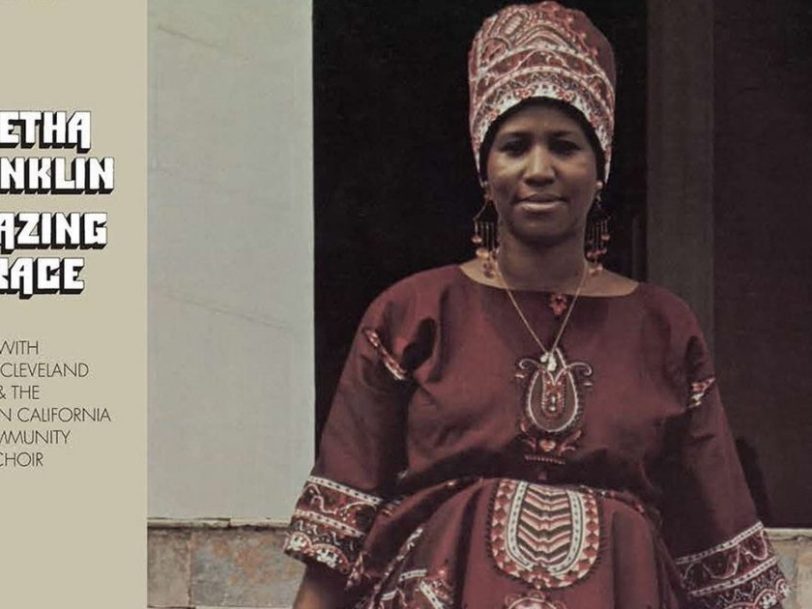“Amazing Grace took me back to church,” Aretha Franklin wrote in her 1999 autobiography, From These Roots, adding of the album, “I mean, recording in church. I never left church. And I never will. Church is as much a part of me as the air I breathe.”
Listen to Aretha Franklin’s ‘Amazing Grace’ album here.
“it was time for me to return to my roots and make a gospel album”
When Aretha said “took me back”, she really meant it. Amazing Grace, recorded and released in 1972, came a full 16 years after her debut record, a 10” featuring the gospel songs Never Grow Old and You Grow Closer. On that 1956 recording, she was billed as the “daughter of Rev CL Franklin, pastor of New Bethel Baptist Church, Detroit Michigan”. Aretha was only 14 when she recorded them, yet those gospel recordings are powerful, fulsome, evangelical – and they were recorded live in her father’s church. You can hear the congregation clearly on those tracks, almost as an instrument in itself.
By the time of Amazing Grace, Aretha was established as one of the world’s best soul singers – the voice of a generation. Since she signed to Atlantic Records in late 1966, album after album had sold well and proved critical as well as commercial successes. But the 70s were marching on, and Aretha felt the sands shift. Her record just prior to Amazing Grace, Young, Gifted And Black, had marked a tonal change. On it, Aretha embraced early-70s-style soul, with tenderness and restraint sitting alongside a funk flywheel in the shape of Rock Steady. Yet evolving in only one way wasn’t enough for Aretha.
“I told Atlantic that it was time for me to return to my roots and make a gospel album,” Aretha recalled. “They appreciated gospel and were pleased at my decision.”




